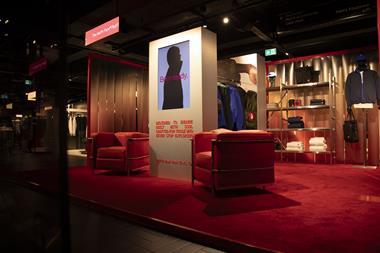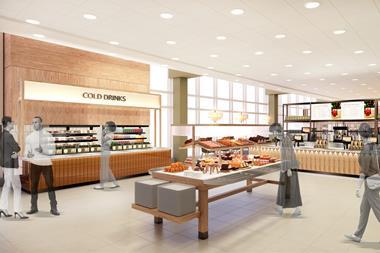New Venturing, the process of designing, developing and delivering a new product or service beyond the core business, is an exciting proposition. Agile Retail’s’ Marcus Fox examines how retailers can create these new departures with the best chances of success
We all know that the retail industry is evolving at an unprecedented rate. Digital disruption, costs of living, global supply chain pressures – the list goes on.
Within that, all brands are affected and some have found their core proposition has been fundamentally disrupted forever.
Venturing gives retailers the ability to create a new product or service (and thus revenue) they did not have before.
This is obviously attractive – John Lewis’ recent venture into home building is an excellent example.
How can brands venture successfully, increase the chances of a new proposition being attractive to customers and deliver that new revenue stream?
1. Protect the core business – foster innovation outside
Innovation and learning how to venture successfully means adopting new skills and behaviours within the business that are different to those required to operate day-to-day.
The skills required to innovate – embracing failure, expediting base-level ventures in front of customers, pivoting and changing – are the antithesis of day-to-day.
A key ingredient of successful venturing is protecting the day-to-day business from the fears of innovation; I’ve found this most successful through running standalone venturing projects, with key parts of the business highly engaged but not feeling “on the hook” for failure.
Often with the customers we work with at Agile Retail we will set up fully separate ‘experimentation stores’, with the sole purpose of testing as many innovations as possible and failing as fast as possible. Not only do we find successful inventions faster, but we learn how to utilise failure as a key step in the process.
2. Experiment as quickly as possible
The chances are that only one in 20 ideas will be commercially successful. With this in mind, retailers do well to trial as many experimentations as possible.
This can be challenging, particularly with digital technology, as retailers tend to have complex and clunky IT infrastructure that prohibits rapid deployment.
This often leads to ‘sequential experimenting’ where only one experiment is run at once.
With this traditional approach, a retailer will only get through three or four experiments a year. By leveraging a multi-experiment platform, brands can try hundreds of things rapidly, quickly discerning where to pivot, persevere or kill an idea.
3. Become obsessed with customers’ lived insight
Retailers often invest heavily in customer insight. Despite this, the insight skills needed for venturing are quite different to those which are useful to trade today’s business successfully.
When venturing, we’re interested in observing what customers say and what they do; we put customer-lived experience at the forefront of our decision making.
At Agile Retail, we use a process called ‘Insight to Action’ – specifically challenging ourselves to take ‘interesting’ customer learnings and quickly turn them into adaptations or experiments – constantly using real-world customer activity to inform the development of our product.
4. Avoid the pilot store
A final note – venturing does not involve ‘pilot stores.’ These are the death-trap of innovation and venturing. Pilots are where the possibilities of experimentation meet the cold hard reality of day-to-day trade and often nimbyism.
No successful venture will be built in a pilot store. Rather, pilot stores should be used to plot the operational path forward for inventions once they have been proven.

Marcus Fox is group managing director of Agile Retail
Marcus Fox has led retail businesses at both enterprise and scale-up level over the past 10 years, including as a senior leader in Sainsbury’s ecommerce team for more than five years. Obsessed with developing a new, successful future for the physical retail store, he has developed Agile Retail over the past four years and leads its work on delivering new and innovative retail concepts with some of the world’s biggest brands.



























